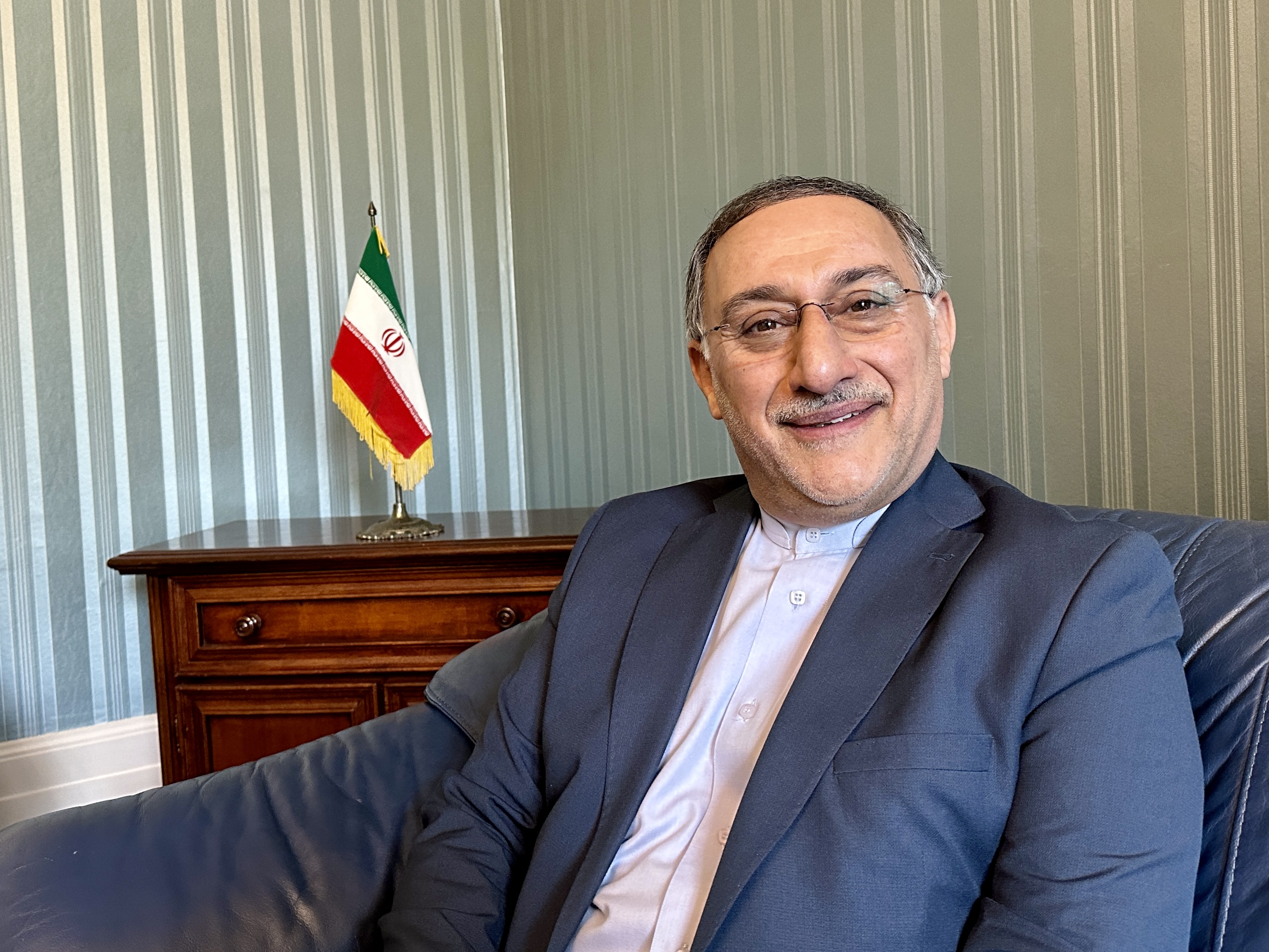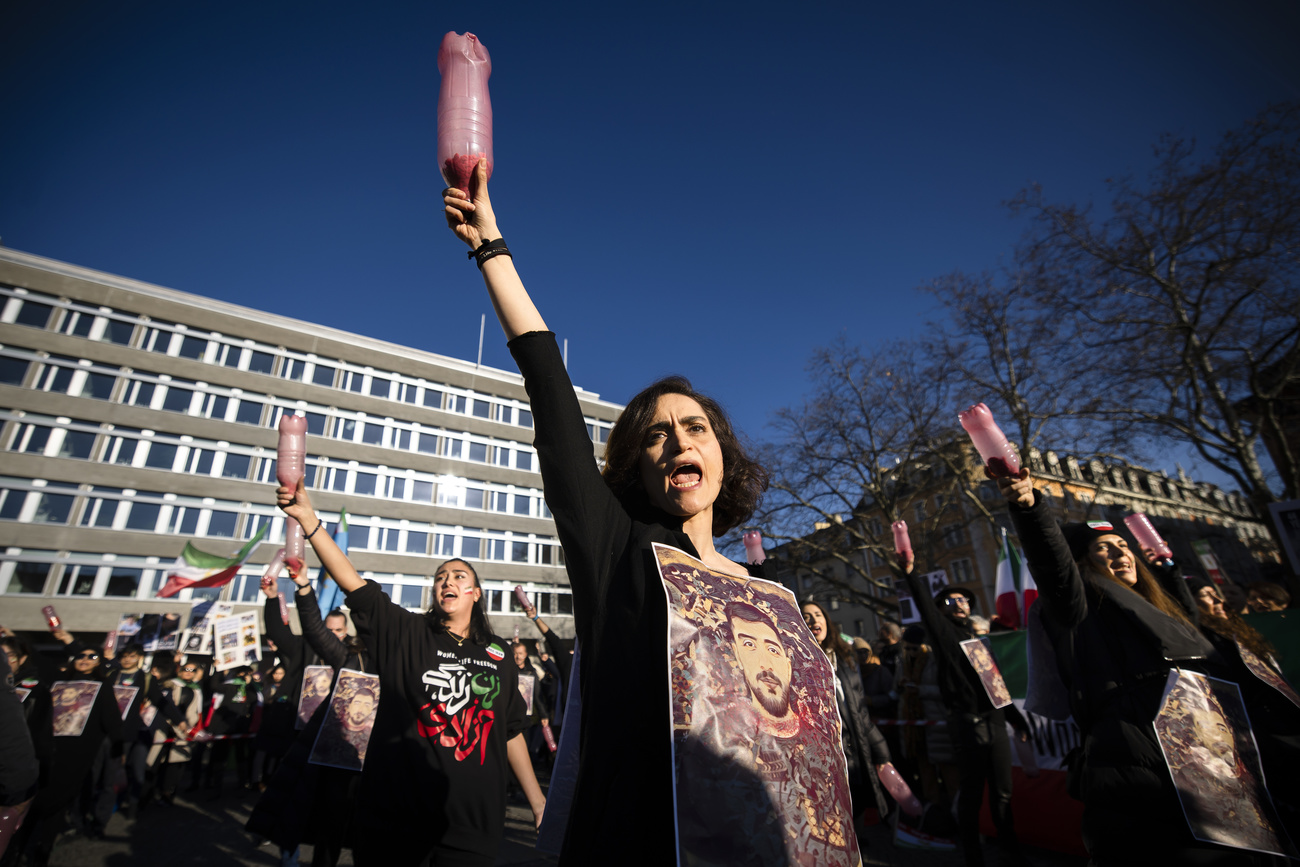Iran won’t compromise on nuclear issues unless forced
On Monday, representatives of Iran are scheduled to meet with counterparts from the United Kingdom, France, and Germany – the three European signatories (E3) to the 2015 Iran nuclear deal – to discuss growing concerns over Iran's escalatory atomic programme.
As an Iranian activist, I have seen this show time and again. Meetings for the sake of meetings. Endless negotiations while the mullahs, muslim clergy, are inching closer to the bomb. The International Atomic Energy Agency said in its latest quarterly report in November that the Islamic Republic now has enough highly enriched uranium to fuel multiple nuclear warheads if enriched further.
The prospective meeting hinges upon collective optimism about the possible re-implementation of the Joint Comprehensive Plan of Action (JCPOA), the nuclear agreement signed between the world powers and the Iranian regime.
But now, even the E3, which has not yet come to terms that the nuclear deal has been on life support for too long to be revived, is casting serious doubts.
Addressing an annual conference with French ambassadors to outline foreign policy objectives in 2025, French President Emmanuel Macron described Iran as the main “strategic and security challenge” for France and Europe.
“The acceleration of the nuclear programme leads us nearly to the point of no return,” Macron said.
The urgency of the situation is not the only parameter that has changed.
The Iranian regime’s leverage in such talks has only diminished as a result of serious losses for its so-called Axis of Resistance, coming in the wake of the 2022 uprising and other waves of domestic unrest. Yet there is no indication that Tehran’s posture in nuclear talks has changed one iota.
Many critics and opponents of the Iranian regime, including the National Council of Resistance of Iran (NCRI), have been arguing for many years that the mullahs primarily use diplomatic negotiations as a tactic for stalling firm action by the international community. This conclusion has been supported by the lack of meaningful progress in every round of nuclear negotiations since the JCPOA was placed on life support and arguably even by the negotiations that led to that agreement in the first place.
If the scheduled talks proceed as planned in Geneva, we should be concerned that it will repeat the same pattern. There is virtually no chance of those talks yielding a breakthrough on the future of the JCPOA or the nuclear issue more broadly, but it is almost certain that they will prompt some Western policymakers to kick the can further down the road and to recommend more and more negotiations, even as Iran potentially pursues more and more illicit activities.
Even worse, these negotiations threaten to serve as a distraction from various other problems plaguing the Islamic Republic and from the regime’s increasingly dangerous responses to those threats. The announcement of the talks comes at a time when Iran’s Supreme Leader Ali Khamenei is making no secret of his regime’s efforts to regain a foothold in Syria after the ouster of Bashar al-Assad, and while NCRI reported that Iran carried out more than 1,000 executionsExternal link, including, 34 women, seven juvenile executions, and 119 Baluch ethnic minority, over the past year – more than in any of the past 30 years and part of a trend whereby the regime aims to suppress dissent through public intimidation.
In light of these developments, reflecting Tehran’s pathological resistance to meaningful policy changes, the E3 should not waste its time with further negotiations unless it intends to change its approach dramatically. That is to say that before they approach the negotiating table, they must increase pressure on the Iranian regime, for instance, by expanding sanctions, shuttering Iran-linked institutions in the West, and blacklisting the Islamic Revolutionary Guard Corps, the Iranian military and counterintelligence agency, as a terrorist organisation.
These sorts of measures, coupled with more assertive, up-front demands, including the cessation of all executions in the Islamic Republic, would indicate to the regime and the world that the E3 understands the essential fact about Iran’s position in international discussions: that the regime will never compromise on its own, and must be forced to do so instead.
Edited by Virginie Mangin

In compliance with the JTI standards
More: SWI swissinfo.ch certified by the Journalism Trust Initiative













You can find an overview of ongoing debates with our journalists here . Please join us!
If you want to start a conversation about a topic raised in this article or want to report factual errors, email us at english@swissinfo.ch.